Change for the Better: On Indigeneity at the Stratford Festival
Stratford is changing for the better.
At least, that’s according to Tara Sky (who plays Cordelia in this season’s production of King Lear) and Joelle Peters (Eugenia in Women of the Fur Trade).
Peters, Sky, and I met on a sunny morning at the Festival Theatre to talk about the productions this season’s in the Stratford Festival in which they are starring, and what it’s like being young, hip, Indigenous artists balancing busy careers while acting in a small town.
King Lear and Women of the Fur Trade are powerful productions for very different reasons.
For Sky, performing in a more inclusive and diverse production of King Lear is a massive step forward for Indigenous representation: “I’m the Indigenous person on the main stage playing Cordelia, which feels nice, because it is my acting abilities and not my culture!” Sky noted that the call wasn’t for a specifically Indigenous Cordelia.
“I grew up in the theatre,” said Sky. She’s quick to point out the gift and privilege afforded to her by her mother, Dora Award-winning multidisciplinary artist Jani Lauzon. Last season at Stratford, Lauzon co-wrote and directed Sky in 1939, a story about the power of theatre and Shakespeare that helps us find our shared humanity and challenges colonial beliefs. However, Sky says she didn’t really know about the Stratford Festival when she was young. She would go everywhere with Lauzon, and Stratford wasn’t on the list of places she performed. So for Sky, playing Cordelia marks an important change, and she is honoured to be part of breaking that barrier here.
In contrast to King Lear, Women of the Fur Trade is an Indigenous story written, directed, and mostly performed by Indigenous artists, which is also a positive step forward for the festival.
For Peters, this is her first time in a festival production, having only participated in workshops at Stratford over the past five years. Though she would often hear from the company that she could act here, her response was always that “I don’t see anyone who looks like me…but that’s shifting.”
Both Sky and Peters acknowledge that it’s a difficult balance to be found for such a storied company. Sky points out that it’s “a fine line of giving representation to the people who need it while also making sure that there are people in the seats. A lot of theatre goers aren’t as interested in watching an Indigenous King Lear as I am,” she said.
Over the past few seasons, Stratford has been increasing their Indigenous content — but if not done thoughtfully, that runs the risk of coming across as an Equity, Diversity, and Inclusion exercise without meaningful impact for the Indigenous communities attempting to be included and supported. “Stratford as a company is still learning how to support Indigenous people through their theatre processes. And it’s not just the Indigenous shows that needs that support. It’s all of the shows with Indigenous people in the cast… it’s the selfish side of me that just wants to see that learning happen a little faster,” Sky said, looking hopeful despite herself.
Peters nodded in agreement, sharing an anecdote about the company bringing in a Haudenosaunee facilitator early into the production rather than a Metis, Cree, or Ojibwe knowledge keeper who could include more relevant teachings in context to a play about Metis (who at the Red River settlements were primarily Cree and Ojibwe). Peters, with understanding and optimism, described a well intended oversight, and added that “it’s exciting that we can even think about these specifics now.”
Ultimately, both artists want to honour the Indigenous artists who have worked with the festival for years, quietly carving out space for public and visual representation. Both Sky and Peters note costume designer Jeff Chief and some Indigenous people on the tech side of things who have been here, quietly representing, making it easier for others. For Sky, working with Metis actor and mask maker Josue Laboucane has been thrilling, this season playing Dogberry in Much Ado About Nothing as well as performing in King Lear. “He’s been with the festival for ten years and has been actively trying to help shift the space. I think he needs just a little bit of credit for that!”
Both Peters and Sky are Toronto-based, so I ask about life in Stratford. Peters says she grew up two hours away, so she’s used to the small city and town “vibe.” Life is busy for Peters as the interim artistic director of Native Earth Performing Arts, as well as being a working artist, so the change of pace is welcome. “It’s nice that when I do get a day off I can choose to go home and be with my family and be with my dog,” she said.
Sky is enjoying Stratford living. “Toronto is turning into a makeshift America, and I’m not into it,” she said of the recent rash of strange and violent incidents happening around the city, including stabbings on the TTC and shootings in busy areas. “A lot of artists have moved here and brought their families here” she added, which has created more warmth and safety in Stratford for emerging artists.
As we approached Peters’ and Sky’s lunch hour — as well as their matinee performances — I was curious about where they hang out and like to eat in Stratford.
“I think the Indian food at Raja is some of the best Indian food I’ve had ever!,” Tara said with enthusiasm.
“Raja is good! I also like Mercer.” Joelle paused before adding that “Bentley’s is a classic. Their chicken fingers are spot-on, my friends.”
The three of us then went our separate ways. (I wandered off looking for Bentley’s.)
I’m left feeling optimistic about the state of Indigenous artists at Stratford. Sure, it’s a work in progress, but it’s happening. An Indigenous Cordelia, as well as an almost entirely Indigenous production – neither are things I would have predicted becoming part of the landscape at Stratford a few short years ago.
Women of the Fur Trade ran at the Stratford Festival from July 8 to July 30, 2023. King Lear runs through October 29, 2023. To purchase tickets or learn more, visit the Stratford Festival website here.


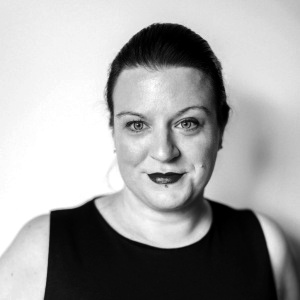
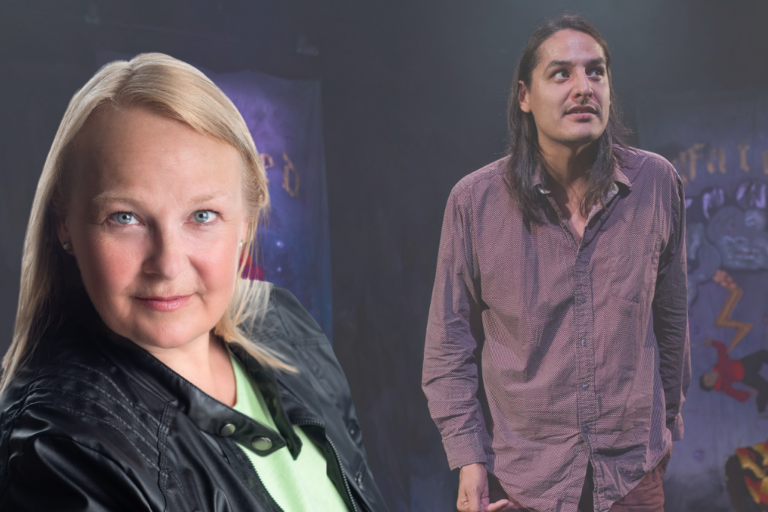


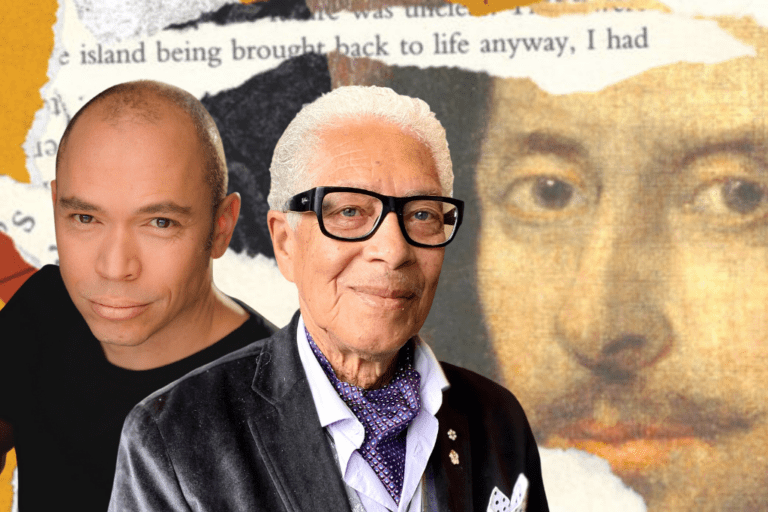
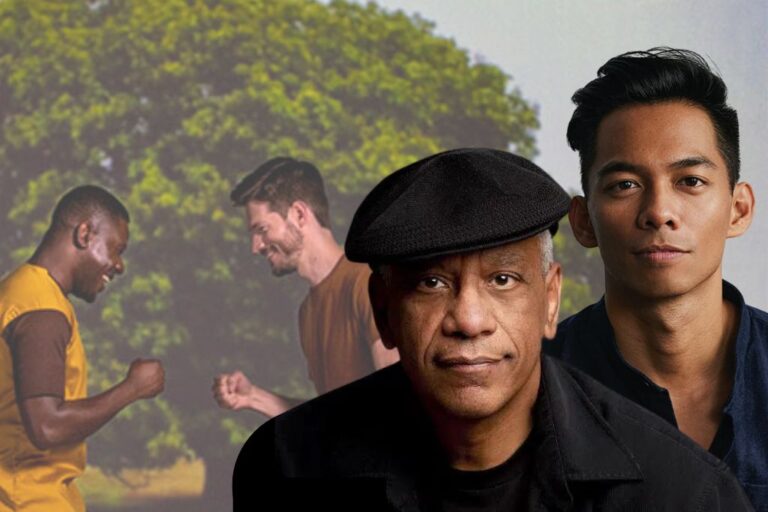
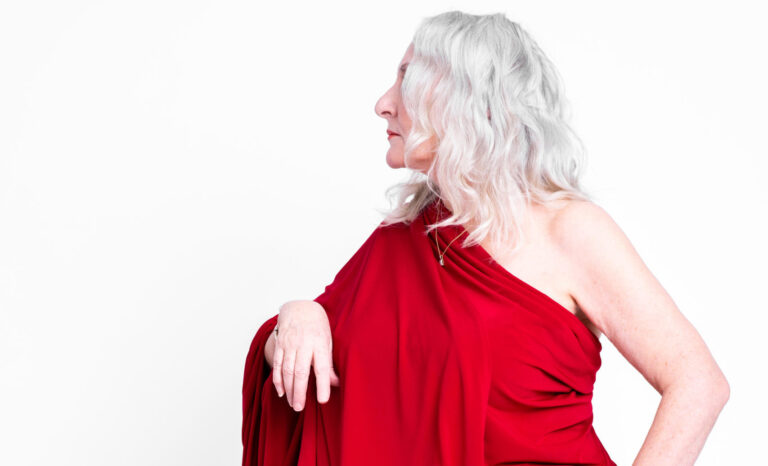
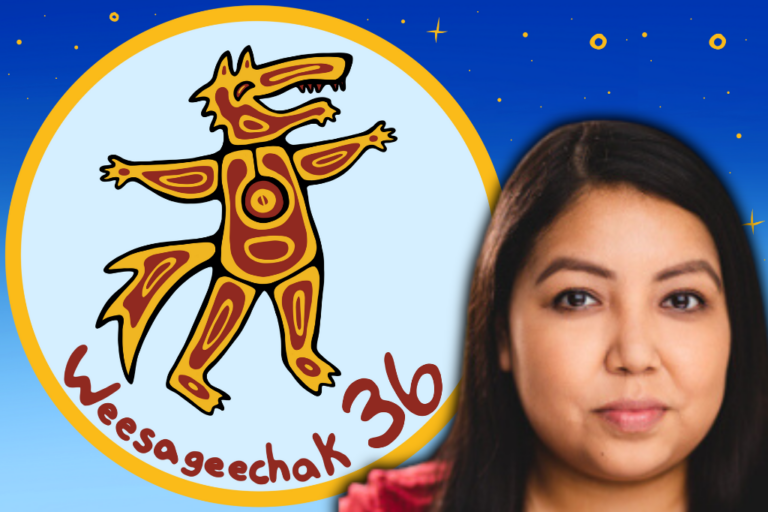
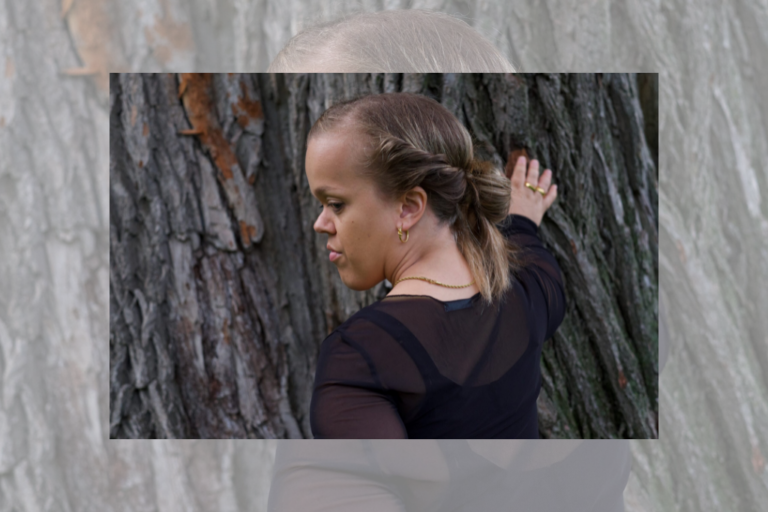
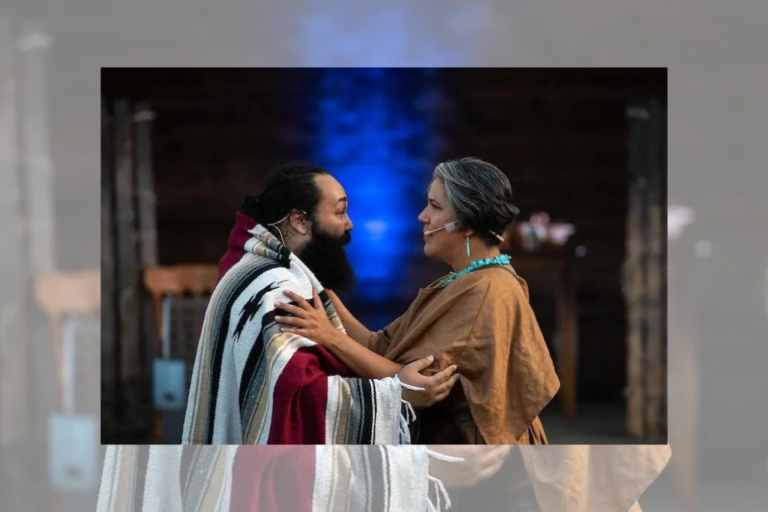
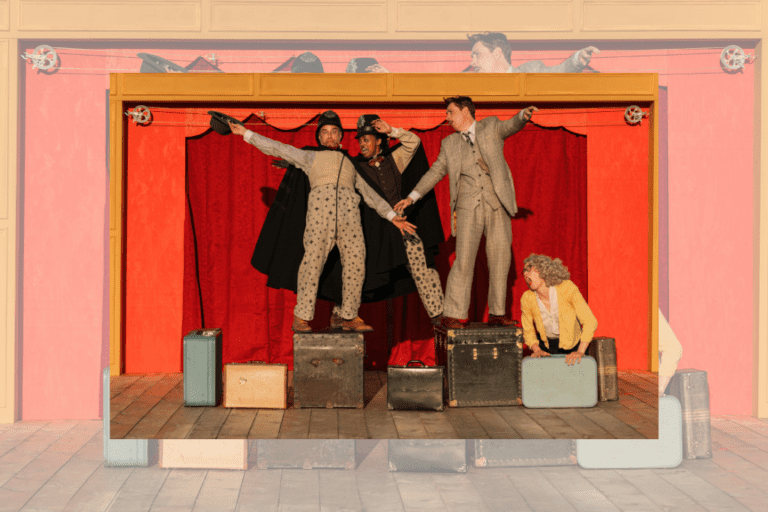
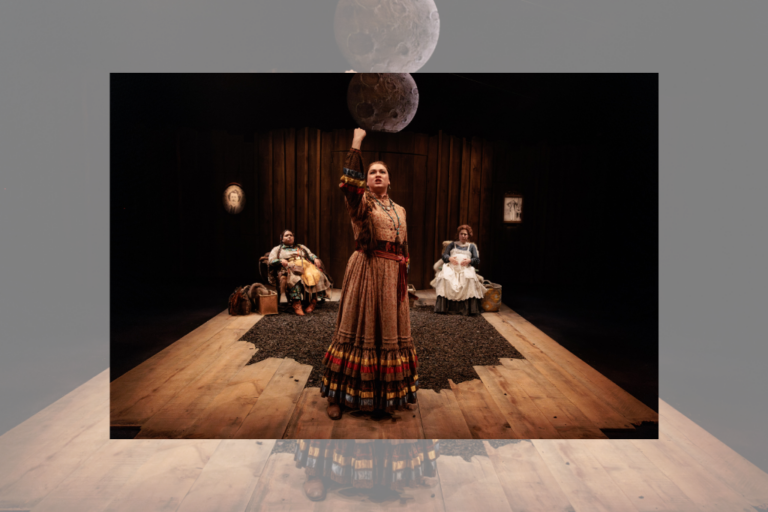
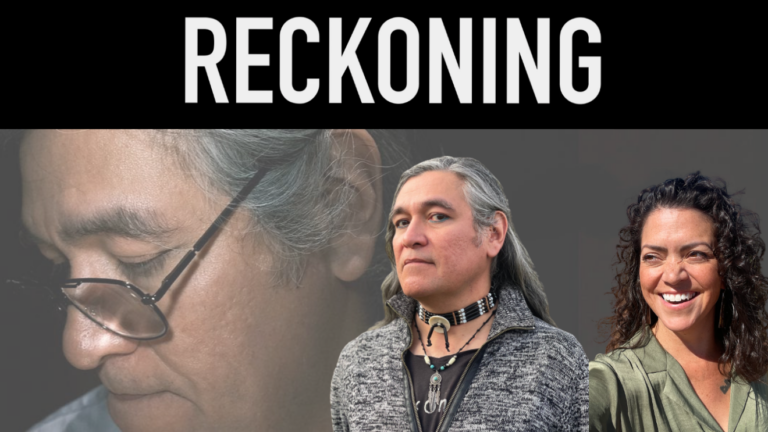
Comments